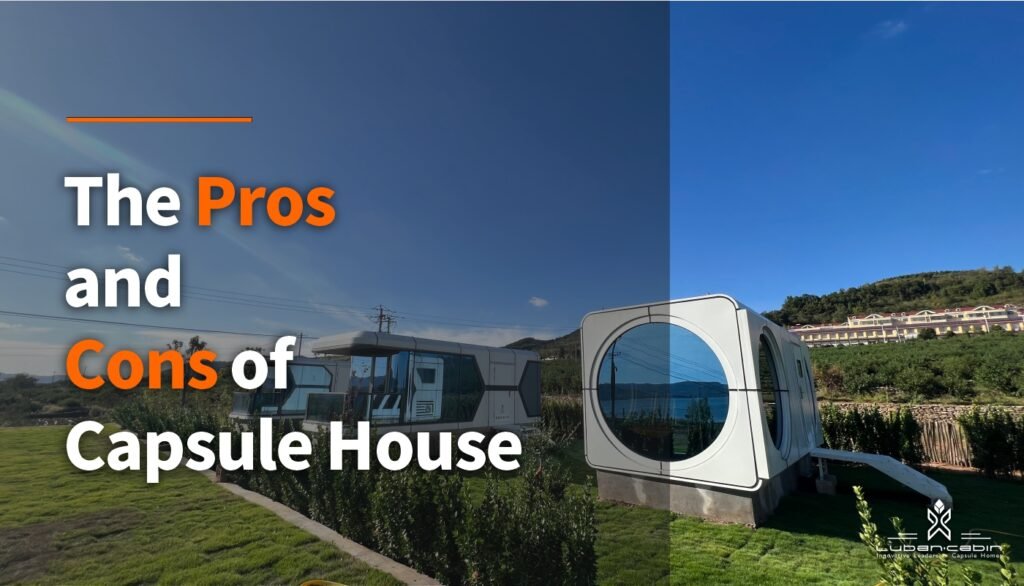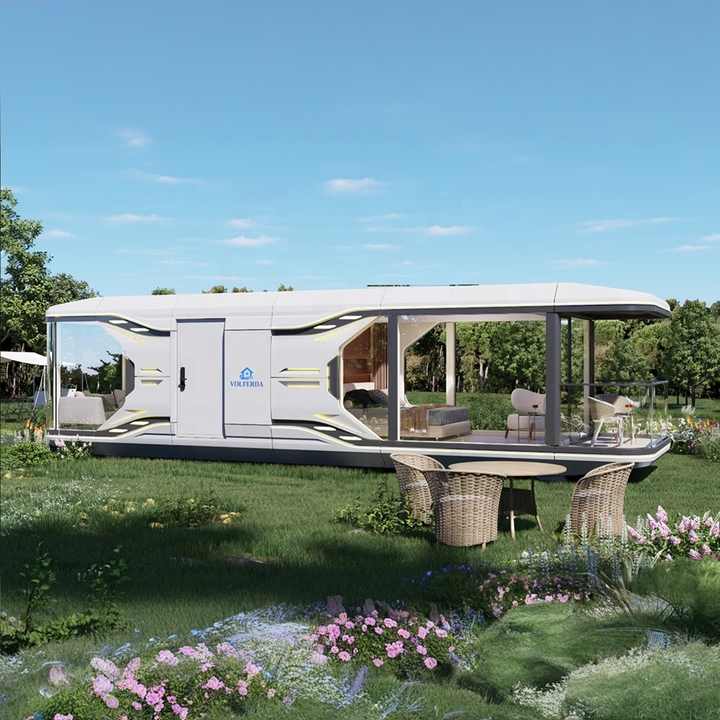Why Modular Houses Are the Future of Lasting Living
Modular homes are progressively recognized as a pivotal remedy for lasting living, providing a blend of efficiency, cost-effectiveness, and ecological benefits. Their construction in controlled environments dramatically decreases waste and improves accuracy, while the capacity for integrating innovative energy-efficient systems positions them as a forward-thinking option in real estate. Moreover, the versatility of modular designs enables the combination of sustainable technologies and products tailored to private needs. As we browse the obstacles of urbanization and environmental sustainability, one have to think about exactly how these homes could redefine our technique to living areas.
Ecological Advantages of Modular Houses
The environmental advantages of modular homes represent a substantial step towards sustainable living. These homes are constructed in controlled factory setups, which significantly minimizes waste created throughout the structure process. By enhancing products and minimizing excess, modular building and construction adds to an extra efficient use sources compared to typical structure techniques.
In addition, modular homes are often made with energy efficiency in mind. Lots of integrate advanced insulation methods, energy-efficient windows, and lasting materials, adding to reduced power consumption. This can cause minimized greenhouse gas discharges over the life expectancy of the home, enhancing its overall ecological profile.
The ability to transport and set up modular components on-site also lowers the carbon impact connected with construction logistics. Lots of modular homes are built to be versatile and easily upgradeable, enabling homeowners to execute lasting innovations, such as solar panels and energy-efficient heating systems, over time.
Ultimately, the environmental advantages of modular homes not just promote sustainable living yet likewise encourage a more accountable strategy to housing development, straightening with global efforts to fight environment change and maintain natural resources for future generations.
Cost-Effectiveness and Cost
Structure a home commonly stands for among the biggest financial investments people make in their lifetime, and modular homes provide a compelling option for those looking for cost-effectiveness and affordability. Among the key benefits of modular homes is their reduced building and construction expenses contrasted to traditional site-built homes. The streamlined manufacturing process enables considerable cost savings on labor and materials, which equates to reduce rates for consumers.
Additionally, modular homes usually have shorter building timelines. This not just decreases costs associated to financing and insurance however also mitigates the threats connected with inflation and rising and fall market problems. Lots of purchasers discover that modular homes can be personalized to fit their spending plans without giving up high quality or style.
Furthermore, energy performance is commonly developed into the layout of modular homes, resulting in minimized utility costs with time. Lots of producers focus on lasting products and practices, further boosting the long-lasting financial viability of these homes. On the whole, the combination of first cost financial savings, rapid building and construction, and ongoing energy effectiveness makes modular homes an attractive choice for those wanting to spend in lasting living without breaking the financial institution.
Effectiveness in Construction
Modular homes not only provide monetary benefits however additionally master building and construction efficiency. The modular structure process includes the simultaneous building of modules in a manufacturing facility setting while website preparation occurs simultaneously. This parallel technique significantly decreases the general timeline from fertilization to completion, usually reducing building time by as much as half contrasted to traditional techniques.
In addition, factory-controlled settings boost quality assurance. By using accuracy production methods, modular homes are constructed to exact specs, decreasing waste and mistakes. This consistency not just leads to a higher high quality item however also adds to sustainable methods by lowering product waste during building.
Furthermore, the usage of modern-day innovation and automation in the production procedure enables quicker setting up and lowered labor expenses. When the modules are transferred to the site, they can be effectively assembled, better expediting the timeline. This structured procedure is not just beneficial for home builders yet additionally decreases disturbances to the surrounding setting during building.
Personalization and Style Flexibility
An outstanding selection of customization options distinguishes modular homes, enabling house owners to tailor their space to satisfy particular needs and preferences. This style adaptability is a characteristic of modular building, allowing customers to choose every little thing from flooring plans and room formats to components and surfaces. Unlike conventional homes, modular layouts official site help with a joint technique where designers and builders function very closely with house owners, guaranteeing that each aspect aligns with visual desires and private way of lives.
Moreover, modular homes can be quickly reconfigured or expanded, suiting transforming family members dynamics or advancing personal preferences. This adaptability not only boosts the home's functionality however also adds to lasting sustainability, as homeowners can change their spaces rather than seek brand-new housing services.

Future Patterns in Lasting Housing
Arising trends in sustainable real estate are improving the landscape of residential building and construction, emphasizing cutting-edge innovations click for source and green practices. One considerable fad is the combination of smart home innovation, which boosts energy effectiveness via automated web link systems that optimize and keep track of power intake. This not only reduces utility expenses however additionally contributes to a lower carbon footprint.
Furthermore, the use of sustainable materials is ending up being significantly common. Home builders are choosing recycled, in your area sourced, or swiftly eco-friendly products, which lessen environmental impact and support local economic situations. Additionally, modular homes are gaining appeal for their minimized waste throughout building and their versatility to different surfaces and climates.
An additional fad is the consolidation of eco-friendly roofings and living walls, which enhance air quality and provide natural insulation. These attributes additionally promote biodiversity in metropolitan areas.
Conclusion
In conclusion, modular homes emerge as a crucial remedy for sustainable living, using considerable environmental advantages via lowered waste and power efficiency. Their cost-effectiveness and affordability resolve the growing housing needs in urban areas, while efficient building and construction procedures enhance total productivity. The intrinsic personalization and style flexibility deal with diverse choices and needs. As patterns in sustainable real estate develop, modular homes are poised to play a vital duty in promoting eco-friendly living techniques for future generations.
Structure a home frequently represents one of the biggest financial investments individuals make in their life time, and modular homes provide an engaging option for those seeking cost-effectiveness and affordability. One of the key benefits of modular homes is their reduced construction expenses compared to standard site-built homes. On the whole, the mix of first price financial savings, quick building, and continuous power effectiveness makes modular homes an appealing choice for those looking to spend in lasting living without damaging the financial institution.
Eventually, the customization and style adaptability supplied by modular homes make sure that they are not simply structures, but individualized shelters that mirror the unique identifications of their owners while advertising lasting living techniques.
